Our application (written in C++, VS 2010 project) has been running fine on all operating systems prior to Windows 8 (and still does). On Windows 8, however, when orderly exiting the application, an access violation occurs:
mfc100.dll!_DllMain@12() <<< Crash here
mfc100.dll!__CRT_INIT@12()
mfc100.dll!__DllMainCRTStartup@12()
ntdll.dll!_LdrxCallInitRoutine@16()
ntdll.dll!LdrpCallInitRoutine()
ntdll.dll!LdrShutdownProcess()
ntdll.dll!RtlExitUserProcess()
kernel32.dll!_ExitProcessImplementation@4()
mscoreei.dll!RuntimeDesc::ShutdownAllActiveRuntimes(unsigned int,class RuntimeDesc *,enum RuntimeDesc::ShutdownCompatMode)
mscoreei.dll!_CorExitProcess@4()
mscoree.dll!_ShellShim_CorExitProcess@4()
msvcr100d.dll!__crtCorExitProcess(int status) line693 C
msvcr100d.dll!__crtExitProcess(int status) line 699 C
msvcr100d.dll!doexit(int code, int quick, int retcaller) line 621 C
msvcr100d.dll!exit(int code) Zeile 393 C
my.exe!__tmainCRTStartup() Zeile 568 C
my.exe!WinMainCRTStartup() Zeile 371 C
kernel32.dll!@BaseThreadInitThunk@12()
ntdll.dll!__RtlUserThreadStart()
ntdll.dll!__RtlUserThreadStart@8()
In an MSDN forum topic it has been suggested to run GC.Collect() before exit, but I couldn't make any difference with such a call shortly before exit.
I am a bit at a loss about how I should debug the problem. As far as I understand, CorExitProcess takes care of cleaning up the managed resources of the application. So could this be a fault in a managed component?
Or is it more likely that some function pointer in _DllMain has been overwritten/corrupted? If so, how would I set a data breakpoint at the address in question? There is a post explaning how to debug a similar issue, but he's having the issue in his own DLL so he can actually peak at the exact source of the problem which I can't.
Any suggestions?
Edit:
Additional information, windbg !analyze -v:
FAULTING_IP:
mfc100+258e6c
64298e6c 8b4654 mov eax,dword ptr [esi+54h]
EXCEPTION_RECORD: ffffffff -- (.exr 0xffffffffffffffff)
ExceptionAddress: 64298e6c (mfc100+0x00258e6c)
ExceptionCode: c0000005 (Access violation)
ExceptionFlags: 00000000
NumberParameters: 2
Parameter[0]: 00000000
Parameter[1]: 53f21f0c
Attempt to read from address 53f21f0c
CONTEXT: 00000000 -- (.cxr 0x0;r)
eax=53f21eb8 ebx=00000000 ecx=64187d2d edx=7fcde000 esi=53f21eb8 edi=00000001
eip=64298e6c esp=00c3f1b8 ebp=00c3f2ec iopl=0 nv up ei pl nz na pe nc
cs=001b ss=0023 ds=0023 es=0023 fs=003b gs=0000 efl=00210206
mfc100+0x258e6c:
64298e6c 8b4654 mov eax,dword ptr [esi+54h] ds:0023:53f21f0c=????????
FAULTING_THREAD: 00000520
DEFAULT_BUCKET_ID: WRONG_SYMBOLS
PROCESS_NAME: ww.exe
ADDITIONAL_DEBUG_TEXT:
You can run '.symfix; .reload' to try to fix the symbol path and load symbols.
MODULE_NAME: mfc100
FAULTING_MODULE: 77bc0000 ntdll
DEBUG_FLR_IMAGE_TIMESTAMP: 4d5f29b8
ERROR_CODE: (NTSTATUS) 0xc0000005 - Die Anweisung in 0x%08lx verweist auf Speicher 0x%08lx. Der Vorgang %s konnte nicht im Speicher durchgef hrt werden.
EXCEPTION_CODE: (NTSTATUS) 0xc0000005 - Die Anweisung in 0x%08lx verweist auf Speicher 0x%08lx. Der Vorgang %s konnte nicht im Speicher durchgef hrt werden.
EXCEPTION_PARAMETER1: 00000000
EXCEPTION_PARAMETER2: 53f21f0c
READ_ADDRESS: 53f21f0c
FOLLOWUP_IP:
mfc100+258e6c
64298e6c 8b4654 mov eax,dword ptr [esi+54h]
APP: ww.exe
ANALYSIS_VERSION: 6.3.9600.17029 (debuggers(dbg).140219-1702) x86fre
MANAGED_STACK: !dumpstack -EE
OS Thread Id: 0x520 (0)
Current frame:
ChildEBP RetAddr Caller, Callee
PRIMARY_PROBLEM_CLASS: WRONG_SYMBOLS
BUGCHECK_STR: APPLICATION_FAULT_WRONG_SYMBOLS
LAST_CONTROL_TRANSFER: from 6429da08 to 64298e6c
STACK_TEXT:
WARNING: Stack unwind information not available. Following frames may be wrong.
00c3f2ec 6429da08 64040000 00000000 00000001 mfc100+0x258e6c
00c3f330 6429dac7 64040000 00c3f35c 77be077a mfc100+0x25da08
00c3f33c 77be077a 64040000 00000000 00000001 mfc100+0x25dac7
00c3f35c 77be07f0 6429daa9 64040000 00000000 ntdll!RtlAddMandatoryAce+0x14e
00c3f3a4 77bfa529 6429daa9 64040000 00000000 ntdll!RtlAddMandatoryAce+0x1c4
00c3f49c 77bfa40e 00000000 00000000 6f2d4890 ntdll!RtlExitUserProcess+0x1e7
00c3f4b0 76ff4231 00000000 77e8f3b0 ffffffff ntdll!RtlExitUserProcess+0xcc
00c3f4c4 6f8b3712 00000000 bd3cbe8b 01f1c054 KERNEL32!ExitProcess+0x15
00c3f74c 6f8c19a2 00000001 00c3f76c 6f1686ad mscoreei!GetFileVersion+0x1835
00c3f758 6f1686ad 00000000 77bdab85 6f8a0000 mscoreei!CorExitProcess+0x27
00c3f76c 70737954 00000000 00c3f784 7073798d mscoree!CorExitProcess+0x94
00c3f778 7073798d 00000000 00c3f7c8 70737ab0 MSVCR100!_query_new_mode+0x159
00c3f784 70737ab0 00000000 a2b843a9 00375f5c MSVCR100!_query_new_mode+0x192
00c3f7c8 70737b1d 00000000 00000000 00000000 MSVCR100!_query_new_mode+0x2b5
00c3f7dc 003274ab 00000000 d1ef1931 00000000 MSVCR100!exit+0x11
00c3f864 76ff173e 7fcdf000 00c3f8b4 77c16911 ww!_enc$textbss$begin+0x64ab
00c3f870 77c16911 7fcdf000 a613e810 00000000 KERNEL32!BaseThreadInitThunk+0x12
00c3f8b4 77c168bd ffffffff 77c8560a 00000000 ntdll!LdrInitializeThunk+0x1f0
00c3f8c4 00000000 003275da 7fcdf000 00000000 ntdll!LdrInitializeThunk+0x19c
STACK_COMMAND: .cxr 0x0 ; kb
SYMBOL_STACK_INDEX: 0
SYMBOL_NAME: mfc100+258e6c
FOLLOWUP_NAME: MachineOwner
IMAGE_NAME: mfc100.dll
BUCKET_ID: WRONG_SYMBOLS
FAILURE_BUCKET_ID: WRONG_SYMBOLS_c0000005_mfc100.dll!Unknown
ANALYSIS_SOURCE: UM
FAILURE_ID_HASH_STRING: um:wrong_symbols_c0000005_mfc100.dll!unknown
FAILURE_ID_HASH: {9e516b68-081f-78d6-cf23-b42f2b3cb573}
Followup: MachineOwner
---------
Screenshot of there the crash occurs:
